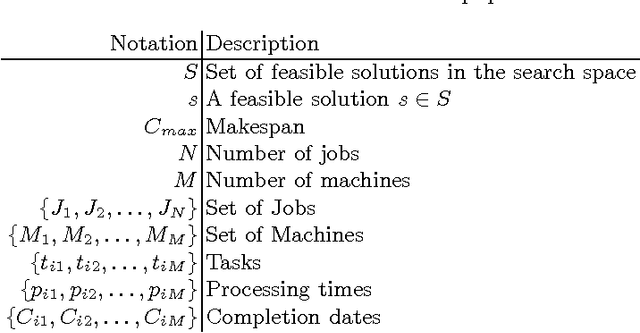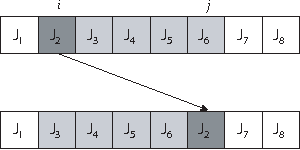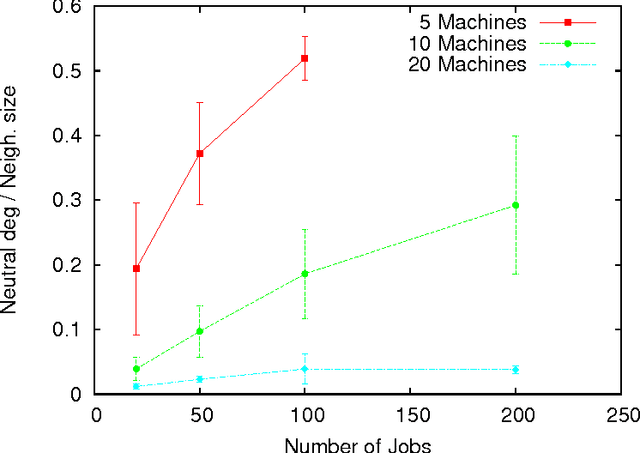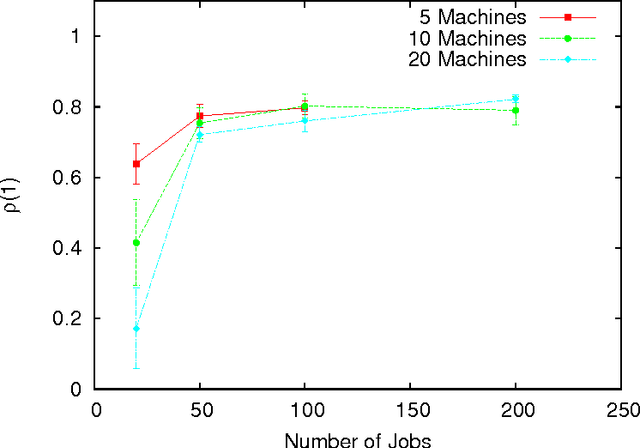Marie-Eleonore Marmion
LIFL
On the Neutrality of Flowshop Scheduling Fitness Landscapes
Jul 19, 2012



Abstract:Solving efficiently complex problems using metaheuristics, and in particular local searches, requires incorporating knowledge about the problem to solve. In this paper, the permutation flowshop problem is studied. It is well known that in such problems, several solutions may have the same fitness value. As this neutrality property is an important one, it should be taken into account during the design of optimization methods. Then in the context of the permutation flowshop, a deep landscape analysis focused on the neutrality property is driven and propositions on the way to use this neutrality to guide efficiently the search are given.
The Road to VEGAS: Guiding the Search over Neutral Networks
Jul 19, 2012



Abstract:VEGAS (Varying Evolvability-Guided Adaptive Search) is a new methodology proposed to deal with the neutrality property of some optimization problems. ts main feature is to consider the whole neutral network rather than an arbitrary solution. Moreover, VEGAS is designed to escape from plateaus based on the evolvability of solution and a multi-armed bandit. Experiments are conducted on NK-landscapes with neutrality. Results show the importance of considering the whole neutral network and of guiding the search cleverly. The impact of the level of neutrality and of the exploration-exploitation trade-off are deeply analyzed.
NILS: a Neutrality-based Iterated Local Search and its application to Flowshop Scheduling
Jul 18, 2012


Abstract:This paper presents a new methodology that exploits specific characteristics from the fitness landscape. In particular, we are interested in the property of neutrality, that deals with the fact that the same fitness value is assigned to numerous solutions from the search space. Many combinatorial optimization problems share this property, that is generally very inhibiting for local search algorithms. A neutrality-based iterated local search, that allows neutral walks to move on the plateaus, is proposed and experimented on a permutation flowshop scheduling problem with the aim of minimizing the makespan. Our experiments show that the proposed approach is able to find improving solutions compared with a classical iterated local search. Moreover, the tradeoff between the exploitation of neutrality and the exploration of new parts of the search space is deeply analyzed.
 Add to Chrome
Add to Chrome Add to Firefox
Add to Firefox Add to Edge
Add to Edge